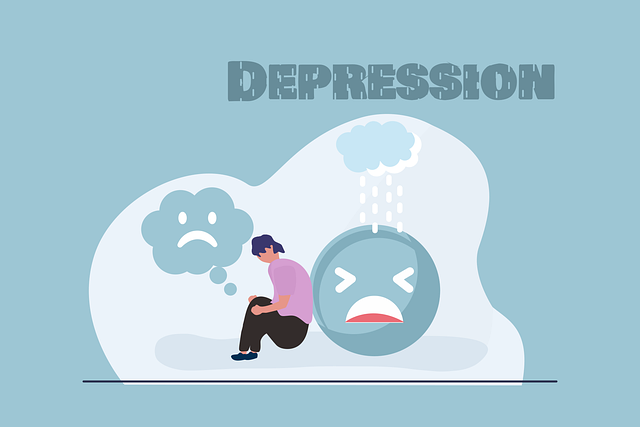Littleton Biofeedback Therapy leads community mental wellness initiatives by designing tailored outreach programs that address local needs and cultural contexts. They employ evidence-based practices, direct engagement, and training for healthcare providers to promote early intervention, dispel myths, and enhance public awareness. Through workshops, seminars, and counseling, they foster open dialogues and build resilience. Evaluating program impact includes assessing short-term and long-term mental health outcomes while considering cultural sensitivity and societal impacts, ensuring sustainable positive change in Littleton's overall well-being.
Community outreach programs are a powerful tool for organizations like Littleton Biofeedback Therapy to connect with and support local communities. This article explores the significance of community engagement, offering insights into designing and implementing successful initiatives. From understanding the needs of your target audience to measuring the impact, we provide strategic guidance. Discover how Littleton Biofeedback Therapy can make a lasting difference by fostering partnerships and delivering accessible therapy through tailored outreach programs.
- Understanding Community Outreach: Why It Matters for Littleton Biofeedback Therapy
- Designing Effective Programs: Strategies for Success in the Local Community
- Implementation and Engagement: Tips for Rolling Out Outreach Initiatives
- Measuring Impact: Evaluating the Results of Community Therapy Programs
Understanding Community Outreach: Why It Matters for Littleton Biofeedback Therapy

In the realm of healthcare services, understanding the fabric of one’s community is paramount for effective delivery and accessibility. Littleton Biofeedback Therapy recognizes that each community has its unique needs and challenges when it comes to mental wellness. Community outreach programs play a pivotal role in addressing these disparities by fostering public awareness campaigns development and initiatives that promote self-esteem improvement. By taking a proactive approach, the therapy center can ensure that its services reach those who may not otherwise have access, creating a more inclusive and supportive environment for all residents.
This strategic engagement involves building bridges between the healthcare provider and the community it serves. Through targeted outreach programs, Littleton Biofeedback Therapy can educate locals on various mental health topics, dispel misconceptions, and encourage early intervention. By fostering open dialogues and providing valuable resources, the center contributes to a culture of proactive mental wellness, where individuals are empowered to take charge of their emotional well-being. Such initiatives ultimately strengthen the community’s resilience and enhance overall public awareness campaigns, ensuring that everyone has the opportunity to thrive.
Designing Effective Programs: Strategies for Success in the Local Community

Effective community outreach programs require strategic planning to resonate with local needs. At Littleton Biofeedback Therapy, we understand that every community is unique, so tailoring programs to specific cultural and social contexts is key. Incorporating evidence-based practices like Stress Reduction Methods and Mind Over Matter Principles ensures the success of these initiatives. By engaging directly with residents, organizations, and local healthcare providers through workshops, seminars, and one-on-one counseling, we foster a collaborative environment that promotes mental well-being.
Cultural Competency Training for healthcare providers is another vital component. This enables better understanding and respectful interactions with diverse populations within the community. By combining these strategies, our outreach programs aim to create lasting positive change, enhancing the overall health and happiness of Littleton residents.
Implementation and Engagement: Tips for Rolling Out Outreach Initiatives

Implementing community outreach programs requires a strategic approach to ensure maximum engagement and impact. For initiatives like Littleton Biofeedback Therapy, focusing on Mental Health Awareness can be a powerful strategy. Start by identifying the specific needs of your target community—whether it’s promoting stress management techniques or fostering open conversations about mental well-being. Personalize your outreach to resonate with local interests and challenges.
Effective engagement involves more than just spreading awareness; it’s about building connections. Mental Health Professionals can enhance their risk management planning by integrating these initiatives into their practices. Encourage participation through interactive workshops, community events, or even virtual webinars that introduce biofeedback techniques and the benefits of positive thinking. By fostering a sense of community and shared purpose, these programs not only advance Mental Health Awareness but also cultivate a supportive environment for individuals to take charge of their mental health journey.
Measuring Impact: Evaluating the Results of Community Therapy Programs

Evaluating the impact of community therapy programs is a crucial step in understanding their effectiveness and identifying areas for improvement. This process involves assessing both short-term and long-term outcomes, ensuring that the program’s goals are met and that participants’ mental wellness improves. By employing various measurement tools and techniques, organizations like Littleton Biofeedback Therapy can gather valuable insights into the success of their initiatives. These assessments may include surveys, interviews, and behavioral observations to capture the experiences and progress of community members involved in therapy programs.
In addition to gauging individual improvements, it’s essential to consider the broader societal impact. Community outreach goes beyond individual therapy; it fosters a sense of collective healing and resilience. Programs that successfully incorporate cultural sensitivity in mental healthcare practice can create safer spaces for diverse populations, leading to more inclusive and effective support systems. Moreover, risk management planning for mental health professionals becomes an integral part of ensuring these programs’ sustainability and positive results over time.
Community outreach programs, like those implemented by Littleton Biofeedback Therapy, play a pivotal role in enhancing local well-being. By understanding community needs, designing targeted strategies, and effectively engaging residents, these initiatives can revolutionize access to therapy and foster healthier, more connected neighborhoods. Measuring the impact ensures continuous improvement, making outreach a powerful tool for community growth and resilience.














